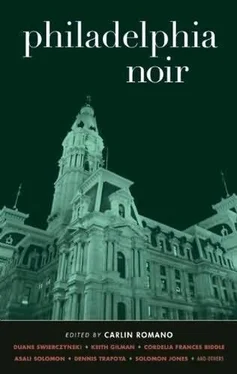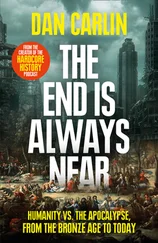The sound of my neighbor ladies’ collective outrage rebounded off the houses.
Fortunately, their cleaning concerns were washed down the storm drains thanks to a deluge that lasted for days. I refrained from saying I told you so.
But it was only because I got out there with a broom that I heard the illicit history of our own house, which had been a front for a still during Prohibition. This explained why the center of our basement was walled in with concrete. For some inexplicable reason, previous owners had decided to brick in the whole contraption instead of removing it. The walls were so excessively reinforced you would have thought they contained a radioactive core. I couldn’t help but think that maybe it also served as the final resting place of a bootlegger or two, who got what they deserved in a booze deal gone bad.
During the fifteen years we lived in that house, I was always looking for “the body”-or some hidden treasure. Upstairs, I found a secret hiding place in the floorboards, and used it to stash a small metal lockbox of valuables. While installing the air-conditioning ducts, our contractor discovered an amber beer bottle still sealed with an old-fashioned wire and rubber stopper, sunk into disintegrating cheesecloth, the beer having evaporated down to dust. Holding that bottle up to the light, I had to wonder at the idiots who made alcoholic beverages illegal. Imagine being compelled to hide a bottle of beer in your wall because it could get you arrested.
When spring came one year, I was anxious to let in some fresh air, and during that first week of mild days, working by my window, I became aware of a creeping uneasiness. And then I realized, bolting upright from my desk and going to the window-listening.
Nothing. I heard nothing.
Not even a snarl from Grendel’s lair. I looked down at their house, taken aback to see that their kitchen blinds were shut tight.
Sometime later, I heard a noisy old diesel truck with squeaky brakes parking over on their street, followed by the sound of yo-dudes hollering to each other as they jumped out. Hmm. Seemed like a furniture delivery to me. When it went on longer than a typical delivery, I grabbed my trusty broom and stepped outside to do some investigative sweeping.
I swept beyond our section of sidewalk-affecting the aspect of an exceptionally good neighbor-all the way to the corner, about forty feet, where I could see the front of the Grendel house.
A medium-size truck belonging to a junk-hauling business was parked there, and two beefy yo-dudes were hoisting a beat-up old washing machine from the basement through the bulkhead doors opening up onto the sidewalk. No sooner did they set down their unwieldy load than another old appliance came floating eerily upward, like a spooky stage apparition through a trapdoor, elevated by a couple more yo-dudes from down below.
Since I was standing in front of my friend’s house, knowing she was at work, I decided to tidy up her sidewalk too, going about it quite methodically so I could keep an eye on the scene, exchanging greetings with passersby. My neighbors were especially curious, looking puzzled regarding the sheer number of discarded washers and dryers lining up on the sidewalk, a half-dozen or more, all of which were wrapped excessively with duct tape.
The appliances were also covered with sticky contact paper designating four decades of decorative patterns and styles: dainty Williamsburg prints of the ’50s, psychedelic op art of the ’60s, metallic disco dazzle of the ’70s. Good Lord , I muttered to myself, laundry day at the Grendels must’ve been confusing.
Why in the world would somebody have so many broken washers and dryers? It didn’t seem possible any one family could go through so many of them, not even in a lifetime. And why get rid of them now? Why not just wall them up in the middle of the basement like the nitwits did with our still? Were they moving? Were they dead?
Later that day, I strolled over to the market to get some provisions and saw that the truck was gone. Grendel’s Mother was out front with a bucket of soapy water and a scrub brush, scouring her stoop.
I couldn’t believe my ears at first, but as I got closer I confirmed that was she was, indeed, listening to Louis Prima. I had never heard a pleasing sound emanating from that house before, and felt myself grinning at her when she looked up. She was squinting against the setting sun and the smoke of a cigarette that was jammed in her crinkly, chubby cheek.
Remarkably, she kind of grinned back, as if she had forgotten for a moment to appear freakish, and I felt triumphant for having overcome my revulsion. Those bookies didn’t call me Smiley for nothing.
A week later my husband heard from a neighbor that Grendel had left his job sometime back in winter, and soon after, skipped town. One theory had him hopelessly beholden to a loanshark for gambling debts. Another had him caught red-handed trying to sell snapshots of kids he had stolen from customers.
I had my own theory, of course, but I didn’t share it with anyone-just minding my own Bella Vista business-because what do I know anyway?
I didn’t see nuthin.
PART IV. T HOSE W HO F ORGET THE P AST …
LONERGAN’S GIRL BY DUANE SWIERCZYNSKI
Frankford
January 6, 1924
Somewhere out there, in the dark, was a noise. Lonergan twitched and tried to roll over but something blocked his way. He rolled the other way then stopped, sensing a huge void. Don’t fall in , he warned himself. He jerked back-
And woke up on the Frankford El.
The train thundered down a set of rails one story above the street, the whole works supported by a green skeleton of steel. Lonergan was in a middle car, sitting on the end of a bench near the center door. There were about a dozen passengers with him, almost all of them reeking of beer and cigarettes and gin. Everyone spaced themselves apart on the bench so they wouldn’t have to stare at a stranger across the way. Or watch a stranger vomit.
Lonergan briefly wondered where the El was now, how long he’d been asleep.
Outside the tops of dark buildings sped by, the sun having long vanished behind them. Best Lonergan could guess, it was around eleven p.m. The El slowed and began to screech. He recognized the sound. This was where the green skeleton curved from Front Street to Kensington Avenue. The Dauphin-York station. He was halfway there.
When the El first opened a little over a year ago, it was the eighth wonder of the Quaker City. Imagine-riding a new, arch-roofed Brill car from City Hall to the outskirts of Frankford in less than twenty-five minutes-a trip that ordinarily took close to an hour by other means! Thousands lined up to try it out, squeezing onto the benches and clutching the leather straps that hung from the ceiling.
Lonergan had been one of them, along with Marie and the boy one bitter Saturday in early December ’22. They didn’t mind the lack of heat, or the way the cars tossed their bodies around like dice in a cup. Riding the El was a thrill like no other. The boy’s eyes were wide the entire trip.
“Papa, look! There’s a giant milk bottle on top of that building!”
“Papa, what if the train tips over and falls off the track?”
“Where will this take us, Papa? Can we ride it again?”
Lonergan had no idea that in less than a year he’d be riding the El all the time. And now he actively hated the damned thing.
It froze him, the night wind chilled by the Delaware before it blasted into the cars. It carried him past neighborhoods he didn’t know, and didn’t care to know. It jolted his body before and after each stop. Worst of all, the Frankford El constantly reminded him how badly things had gone since the elections.
Читать дальше












